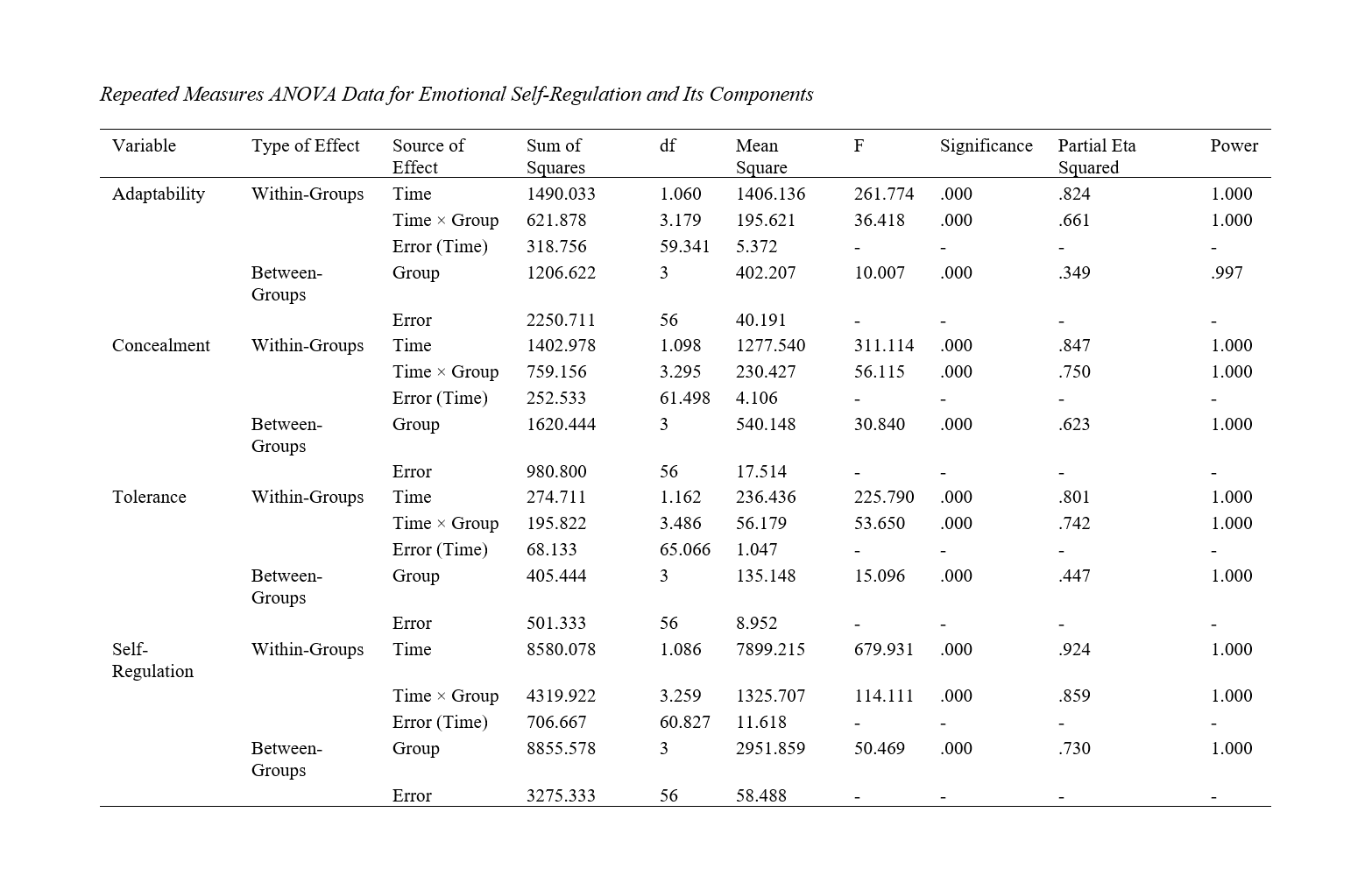Comparison of the Effectiveness of Paradox Timetable Cure (PTC), Acceptance and Commitment Therapy Matrix (ACTM), and Emotion-Focused Therapy (EFT) on Differentiation and Emotional Self-Regulation in Women with Marital Conflict
Keywords:
Paradox Timetable Cure, Matrix Acceptance and Commitment Therapy, Emotion-Focused Therapy, Differentiation, Emotional Self-Regulation, Marital Conflict, Women's Mental HealthAbstract
Objective: This study aimed to compare the effectiveness of Paradox Timetable Cure (PTC), Acceptance and Commitment Therapy Matrix (ACTM), and Emotion-Focused Therapy (EFT) on differentiation and emotional self-regulation in women experiencing marital conflicts.
Methods: The research employed a quasi-experimental design with pre-test, post-test, and follow-up stages. The study sample consisted of 60 women with marital conflicts, selected through purposive sampling from an initial group of 154. The participants were randomly assigned to four groups: PTC, MACT, EFT, and a control group, each containing 15 members. The intervention included ten 90-minute sessions for each therapy group, while the control group received no treatment. Data were collected using the Differentiation of Self Inventory and the Emotion Regulation Questionnaire. Repeated measures ANOVA and Bonferroni post hoc tests were used for data analysis.
Findings: The results indicated significant improvements in differentiation and emotional self-regulation across all three therapeutic approaches compared to the control group. ACTM and EFT were found to be slightly more effective than PTC in enhancing differentiation and emotional self-regulation (MACT and EFT p = .000, PTC p = .004 in differentiation; ACTM and EFT p = .000, PTC p = .001 in emotional self-regulation).
Conclusion: All three therapeutic approaches—PTC, MACT, and EFT—were effective in improving differentiation and emotional self-regulation in women with marital conflicts. However, ACTM and EFT demonstrated marginally higher effectiveness compared to PTC. These findings suggest the utility of these therapies in clinical settings for addressing marital conflicts.
Downloads

Downloads
Additional Files
Published
Issue
Section
License

This work is licensed under a Creative Commons Attribution-NonCommercial 4.0 International License.




















